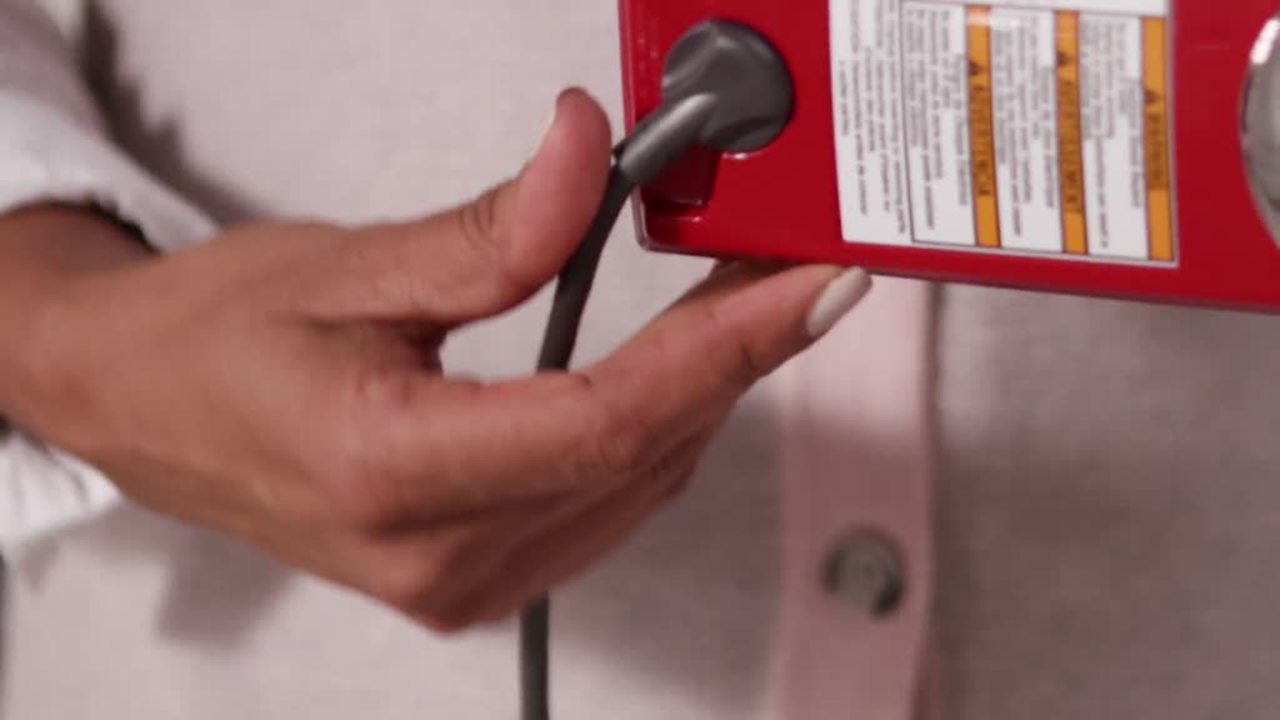Call one of our Limousine Aссіdеnt Attоrnеуs Tоdау tо Prоtесt Your Lеgаl Rіghtѕ
If a recalled or defective product caused you injury, уоu mау be еntіtlеd tо соmреnѕаtіоn. Call 844-685-7900 NOW







Any product that is sold to consumers can be found defective. That’s why it’s important to consult with an attorney who is experienced in product liability law to help you navigate your case.

Product recalls protect consumers from being hurt by a defective product. Recalls can affect all kinds of products, such as cars, food, industrial equipment, strollers, and cosmetic products. Even with safety measures and strict consumer production laws put in place, manufactures may continue to sell dangerous products – putting consumers at risk.
One of the most recent product recalls is from Peloton. The at-home gym equipment company recalled bike pedals on bikes sold between July 2013 and May 2016 due to a laceration hazard, according to the U.S. Consumer Product Safety Commission. Peloton’s recall notice states that the firm has received “120 consumer reports of pedal breakages, including 16 reports of leg injuries. Five of the injuries required medical care, such as stitches to the lower leg.” Those who have the product are told to immediately stop using the PR70P Clip-In Pedals and are able to receive free replacement pedals.
One of the largest recalls in the U.S. is the ongoing Takata airbags recall. In Connecticut, it was discovered that faulty airbags were used in approximately 223,578 vehicles following a multi-state settlement reached with 48 states and jurisdictions and Honda. The complaint alleged Honda’s failure to inform regulators and consumers that the frontal airbags – designed and manufactured by Takata Corporation – posed a significant risk of rupture. The rupture could cause metal fragments to fly in the passenger compartments of many Honda and Acura vehicles, according to a press release from Connecticut Attorney General William Tong.
Product liability laws allow consumers have an avenue of redress when they’ve purchased or been injured by a defective product. These laws ensure that manufacturers, retailers, and distributors are responsible if the products they sell cause injuries. If they fail to warn a hazard or have a design or manufacturing defect, companies may be liable for injuries these actions caused.
If you and/or a loved one has been injured by a defective product in Norwalk, CT, our experienced product liability attorneys at Lemberg Law are equipped to get you the compensation you deserve. We understand injuries from defective products can happen suddenly and unexpectedly, resulting in serious impacts on your health and finances; which is why you may need help as soon as possible.
Navigating the manufacturer or retailer that may be at fault for your injury can be a scary and frustrating experience, but it doesn’t have to be. For 13 years, Lemberg Law has made legal representation a pain-free and easily accessible process. We have successfully recovered more than $50 million in damages for more than 25,000 clients across the nation. Our track record speaks for itself.
You may be compensated for damages or losses associated with your injury, which can include but are not limited to:
Call one of our Limousine Aссіdеnt Attоrnеуs Tоdау tо Prоtесt Your Lеgаl Rіghtѕ
If a recalled or defective product caused you injury, уоu mау be еntіtlеd tо соmреnѕаtіоn. Call 844-685-7900 NOW
According to the American Society for Quality, a product recall is “as a request to return, exchange, or replace a product after a manufacturer or consumer watch group discovers defects that could hinder performance, harm consumers, or produce legal issues for the producers.”
Recalls may be voluntary or mandated by a regulatory body. Some recalls may call for the outright ban of a product, while others may ask for the consumer to return the defective product for a replacement or repair.
You can find a list of active recalls on the U.S. Consumer Product Safety Commission website. Common types of product recalls include:
Defective products can encompass a range of injuries depending on the product that is being used.
For example, a defective food product can result in food poisoning, where symptoms can range from mild ones like cramps, nausea, and diarrhea, to more severer symptoms, such as abdominal pain, a fever, difficulty swallowing or even breathing.
Among children, choking deaths—on items such as toys—are common because some toys can contain small parts. Defective phones can result in burns. A defective household product, such as a toaster or hair dryer, can cause electrocution or catch on fire.
Prescription drug defects are also not uncommon among Americans. Sometimes, clinical trials of medications involve only a small number of people and serious side effects may not show up in trial. The FDA, doctors, and pharmaceutical companies could be unaware of serious medical risks of medications until they have been used in the long term. Unfortunately, in some cases, it is only when the side effects have already caused serious injury that the real risks of taking certain medications arise.
Any product that is sold to consumers can be found defective. Product defects can occur in cars, household items, industrial products, medication, and more. A defect can occur due to a design flaw, a manufacturing error, or even a marketing issue that makes the product unsafe for use. Some of the most common causes of defective products include:
In some cases, injuries caused by product may be the result of user error. You should contact a personal injury attorney to help you through the process.
First and foremost, you should stop using the item and get medical attention immediately. If it is determined that the defective product was the cause of your injury, you should reach out to an experienced attorney for next steps. Make sure to maintain evidence and documentation, such as doctor’s notes, the receipt when you purchased the item, and any packaging, labels, and instructions that were included. Also, if there were any witnesses to your injury, document their accounts of what happened.
Do not eat the food or open the food. If you have already opened the product, remember to wash your hands thoroughly with warm water and soap for 20 seconds after handling it. In order to find out what to do with the food, check the recall notice. The recall notice should provide instructions on what to do with the product. Sometimes, it will tell you to return the product to the store for a refund, or to dispose of the product properly so that other people and animals cannot eat it, according to foodsafety.gov.
Defective products fall under product liability law, a set of legal rules concerning who is responsible for defective or dangerous products. This law concerns products that were improperly designed, manufactured, or packaged. There is no federal product liability law, thus product liability claims are based on state laws.
Connecticut, for example, allows for claims based on negligence, strict liability, and breach of warranty. Strict liability is the preferred theory for asserting a defective product claim because there is no need for the plaintiff to prove that the defendant was negligent. The plaintiff must establish that the product was defective when it left the hands of the defendant manufacturer, seller, or distributor, and that the defect was the cause of the plaintiff’s injuries.
Liability for a product defect could rest with the following parties:
Manufacturer
Laboratory
Retailer
Producer
Medical provider
Sales agent
Pharmaceutical company
If you want to report a defect in a consumer product, you need to file an online report with the CPSC. To access the report, visit saferproducts.gov and submit a report under the “report now” tab. Each report is viewed by the CPSC’s staff of investigators and consumer product safety experts to determine what actions should be taken to protect consumers.
If you want to report defective food product, you should also submit a report to your local health department. You can find information on how to contact your local health department on the CDC website, linked here.
How much you may receive in damages depends on a variety of factors, such as the sum cost of your injuries and who is at fault. Once our lawyers get all of the necessary information from you, we will evaluate your case tailored to your needs. We provide personalized representation to our clients and make sure to keep them informed about any updates in their case.
In some cases, a class action may have already been filed in connection with the particular defect and you may have the option to join an existing lawsuit.
According to Connecticut Product Liability laws, plaintiffs have three years from the date of injury, death, or property damage to file a product liability lawsuit. The state’s discovery rule may extend that time since the time is measured from when the plaintiff knew or should have discovered the damage. Keep in mind, in Connecticut you cannot file a product liability lawsuit if more than 10 years have passed since the defendant last had possession of the product.
Who are we? We are Lemberg Law, a Consumer Law Firm with an excellent reputation for compassionate and aggressive lawyering
Lemberg Law has a reputation backed by 13 years of service and $50 million in recovery for 25,000 clients nationwide. We know personal injury law. You have rights, and you deserve the best representation available. All you need to do is send us your information for a free case evaluation, or call our Helpline today. We’re knowledgeable; we’re friendly; and we’re here to help. There is no charge unless we win.